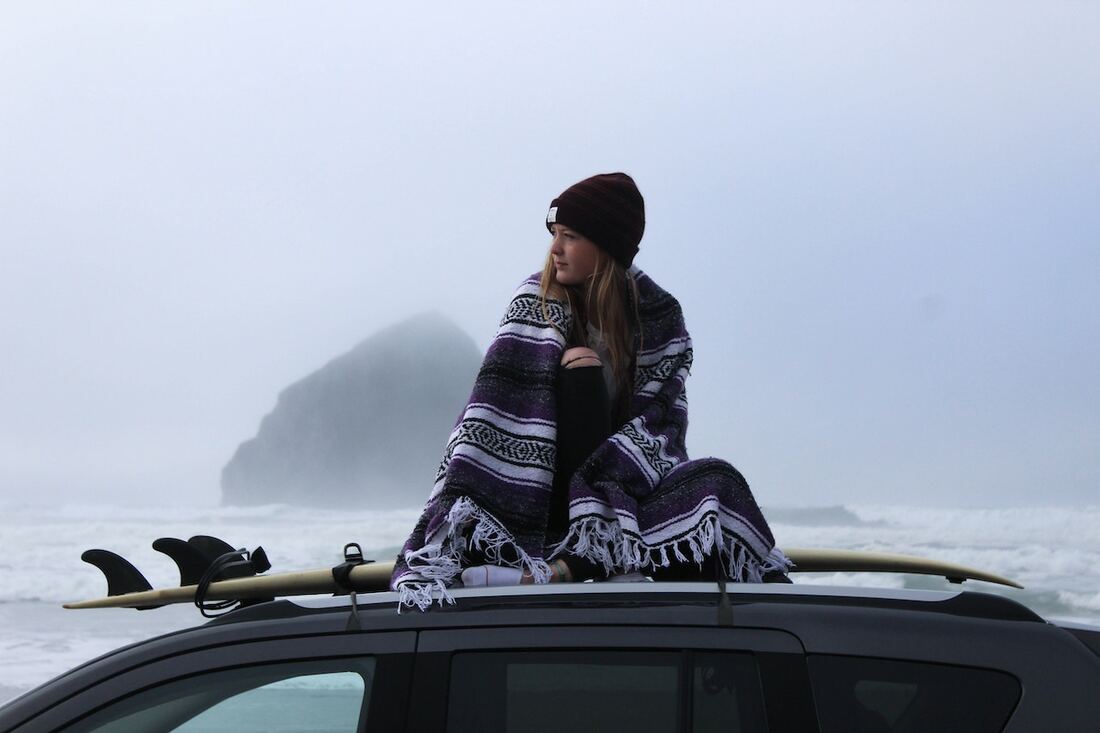
Can you feel it? The change in the air? It’s undeniable…winter is taking over. Your bikinis are already feeling neglected and you probably won’t touch your sunscreen tube for the next few months... Big mistake! But do you really need to wear sunscreen in winter?
Well, the skin experts align on this: to avoid cumulative damages on the skin, SPF must be used all-year-round.
The sun may feel weaker or even absent in winter…but that doesn’t mean skin-damaging UV rays are not hitting your skin. UVA rays, in particular, are present all-year-round. For this reason, wearing sunscreen throughout the year - even in the coldest months - is critical for those who want to keep your skin looking younger for longer. To fully understand it, here is a little refresher on UVA and UVB rays.
UVA | Ultraviolet A rays, also called "long wave" rays, make up 95 percent of the rays that reach the surface of the Earth. They can penetrate the skin much deeper than UVB rays, and are responsible for signs of aging (like dark spots and wrinkles). They also can initiate skin cancers. These are the rays that make you more tan (ref: gq.com). UVA rays can penetrate glass and clouds – you are thus likely to be exposed to UVA rays all year round, even in the shade and indoors.
UVB | Ultraviolet B rays, or "shortwave" rays, don’t penetrate the skin as deeply. They're what causes redness and sunburns. They are most intense from early spring to early fall, and during the day’s sunniest hours. UVB rays are not as likely to penetrate glass as UVA rays, but even though they dwindle in the winter, many can reach the Earth’s surface and are easily reflected off snow and ice. This makes them a bigger threat on the ski slopes, and at higher altitudes on sunny days (ref: gq.com). If you are hitting the slopes this winter, remember that reflection from snow can increase UV radiation by up to 50%, and increases by 15% for every kilometre in altitude. Photo: Mattias Olsson (Unsplash.com)
Photo: Mattias Olsson (Unsplash.com)
UVA | Ultraviolet A rays, also called "long wave" rays, make up 95 percent of the rays that reach the surface of the Earth. They can penetrate the skin much deeper than UVB rays, and are responsible for signs of aging (like dark spots and wrinkles). They also can initiate skin cancers. These are the rays that make you more tan (ref: gq.com). UVA rays can penetrate glass and clouds – you are thus likely to be exposed to UVA rays all year round, even in the shade and indoors.
UVB | Ultraviolet B rays, or "shortwave" rays, don’t penetrate the skin as deeply. They're what causes redness and sunburns. They are most intense from early spring to early fall, and during the day’s sunniest hours. UVB rays are not as likely to penetrate glass as UVA rays, but even though they dwindle in the winter, many can reach the Earth’s surface and are easily reflected off snow and ice. This makes them a bigger threat on the ski slopes, and at higher altitudes on sunny days (ref: gq.com). If you are hitting the slopes this winter, remember that reflection from snow can increase UV radiation by up to 50%, and increases by 15% for every kilometre in altitude.
 Photo: Mattias Olsson (Unsplash.com)
Photo: Mattias Olsson (Unsplash.com)
Even though they dwindle in the winter, many UVB rays can reach the Earth’s surface and are easily reflected off snow and ice. This makes them a bigger threat on the ski slopes, and at higher altitudes on sunny days.
Dermatologists recommend the use of a broad-spectrum sunscreen on a daily basis and all year round, to prevent cumulative damages caused by sun exposure, such as fine lines, wrinkles, discoloration and even skin cancer. According to Dr. Jean Laing, founder of the spa brand LaGaia Unedited, "most people underestimate the dangers of UV-exposure in winter, and associate sun-damage to sun-burn only. UVA rays are the most insidious because they hit the skin unseen and cause cumulative impacts over time".
So, whenever the question "do you need to wear sunscreen in winter?"is asked, here is the answer. Yes. In essence, "if there is a shadow, there is UVA, even indoors!" To mitigate their effects, Dr. Jean Laing recommends wearing SPF daily – as part of your morning skin routine. “Sunscreen is your #1 sun and ageing control…You may not see it now, but in 10 to 20 years you will see a huge difference in your skin”.


Comments (0)
Back to Blog